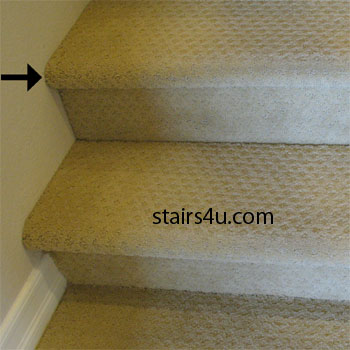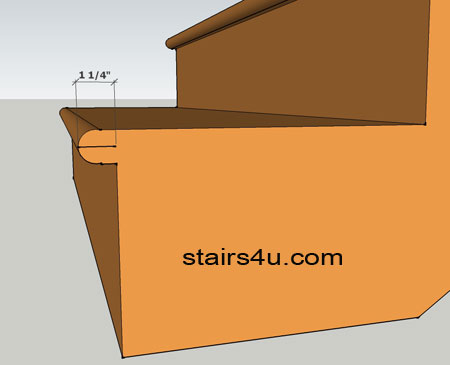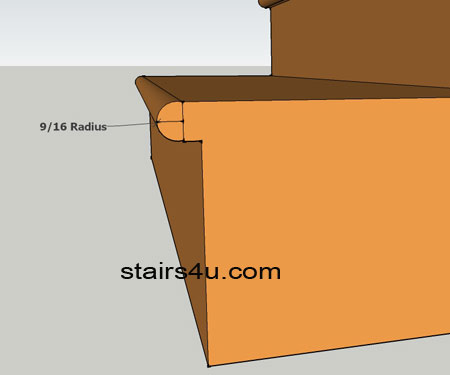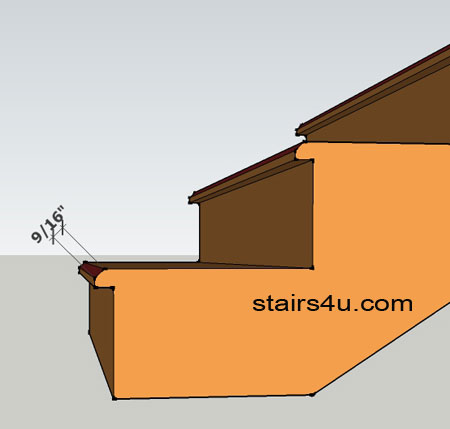Stair Tread Nosing Requirements

The maximum distance a stair tread nosing can protrude is 1 - 1/4 inches and cannot have more than 9/16 of an inch radius curvature at the front edge.
Reference: 2012 International Building Code - 1009.7.5 Page 254
Here's something else you should keep in mind, as far as I can tell,
these will be finished measurements and if you're going to install tile,
carpeting or other materials over the treads and risers, then you will need
to compensate and make the necessary adjustments, to make sure that your
finished set of stairs falls within these recommended specifications.
The 2010 California Building Code Book does not allow
more than a 9/16 of an inch bevel on the stair nosing. Remember, if
you're not sure and you're not going to contact your local building
department, to verify any of these building codes, stick to the bare
minimum or maximum's.
Attention: Don't forget to check with
your local building department to verify any building codes on this
website. This information could be incorrect or outdated. Building codes
are updated regularly and some building departments have different
interpretations for certain building codes.
Special Note: Some stairways do not have a stair tread nosing and I couldn't find one building code book that required one.

The total overall stair tread overhang measurement is from the face of the finished stair riser, to the face of the finished stair tread.

The illustration above provides you with an excellent example of the 9/16 of an inch maximum radius requirement, for stairway step or tread nosing. Don't forget, the radius is half of the diameter.

The illustration above provides you with my interpretation of what you're
allowed to do, when beveling the front edge of a stair tread. The 9/16 of an
inch maximum length of a bevel would apply to any angles.
Remember,
to check with your local Building Department to validate any of the
information I'm sharing with you on this website. We all have our own ways
of interpreting information and my way might not always be right.

